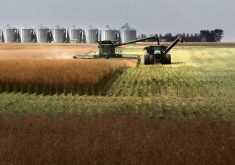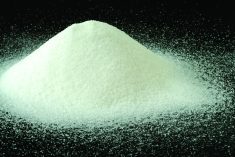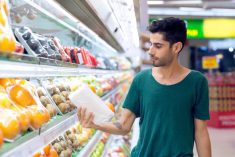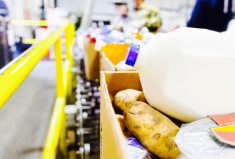Food supply chain issues have enticed many to question the global nature of our food systems.
Some are suggesting we need to deglobalize and refocus our energy into making most economies around the world food sovereign. Given what the world is about to face this year, with major famine among millions experiencing acute hunger, it’s hard to argue against such a claim. But global trade over the years, especially for Canada, has been nothing short of a godsend.
First off, we should be clear on one fundamental reality. The world is still all about the United States and China. Everyone else adjusts along the way. A total of 35 per cent of China’s exports go to the United States. China is also America’s No. 1 customer. Canada in the grand scheme of things matters very little.
Read Also
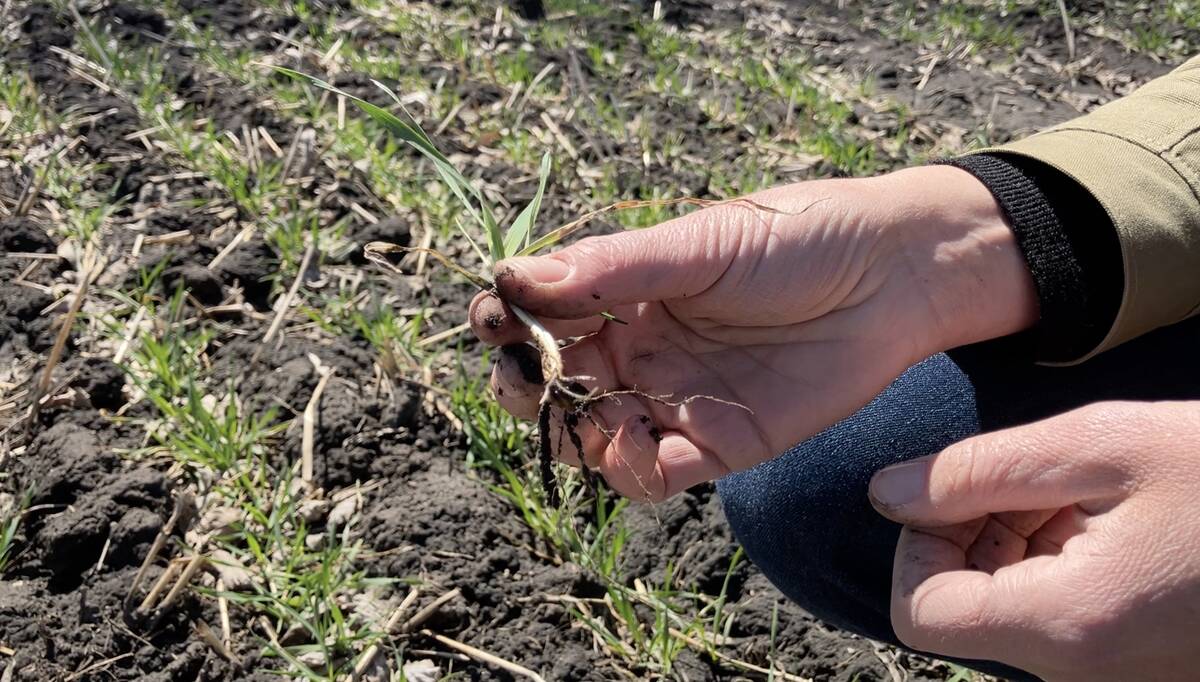
Canadian government got it wrong on public plant breeding
Cuts to Agriculture and AgriFood Canada will undermine Canadian agricultural productivity, says National Farmers’ Union member Dean Harder.
About 15 per cent of all calories on earth come from wheat. Corn covers a lot of calorie ground as well. With Ukraine out, coupled with sanctions against Russia, our global wheat deficit this year will be a significant challenge. We are going to be short on wheat, corn, barley, and many other commodities. It is likely that this year more than 100 million additional people on earth will experience either famine or acute hunger.
With Biden’s recent ethanol mandate, almost 40 per cent of the U.S.’s corn crop is used for ethanol, not food. The food-for-fuel obsession is back, despite the looming crisis.
Canada will be fine, food access-wise, but food will get more expensive. Poor nations will always lose access to their food supply first while richer nations like Canada will secure food supplies by paying more. Poor countries have no capacity to store calories at all.
Commodity traders are already buying and even hoarding what they can get to secure supplies needed for the next several months. China is basically the only nation around the world that could bridge the calorie gap many nations will face. China’s significance cannot be underscored enough.
Of some of the challenges we are currently facing, fertilizer access is certainly one. These critical inputs for farmers are on average about US$1,500 a ton, which is five times what it was 12 months ago. Farmers need fertilizers, but the market is controlled by a handful of very greedy multinationals that supply manages their products to artificially boost fertilizer prices. This needs to stop.
We are also paying for years of genetic engineering bashing in the media by groups that have used fear to put forward their agenda.
The approval process of new traits for new crops can take years in many developed countries, including Canada. Agriculture is and will always be about technologies, and anti-GMO fanatics will have to accept that.
And now, many are talking about deglobalizing our food economy. For Canada, this would be a problem. Canada is one of the largest countries in the world with less than 39 million people living in the country. Deglobalization essentially means for Canadians a reduction in our standard of living. Almost 60 per cent of our wealth comes from trade. But this doesn’t mean our approach to trade doesn’t need fixing; it certainly does.
High-functioning food systems are not immune to destructive forces like climate change, and a global pandemic. We know that. Tyrants like Putin can only make matters worse. A globalization 2.0 agenda will require not only getting nations to adhere to an acceptable humanitarian conduct to participate in a global economy, but nations also need to make sure farmers are not held hostage by the powerful companies controlling the fertilizer industry.
Canada will need to make our agriculture more efficient, more productive, by way of a solid food autonomy strategy. Canada needs a pathway to produce more food in an open economy, offering us better access and affordable prices while sustainably growing our agricultural trade.
A comprehensive strategy would include both sustainable water practices and the use of renewable energy. If we do things right in Canada, in a few decades we could end up supplying water-scarce California with food, and not the other way around. Bold thinking requires an audacious strategy.
Canada can do better as we have so much to offer.
– Sylvain Charlebois is senior director of the Agri-Food Analytics Lab.




